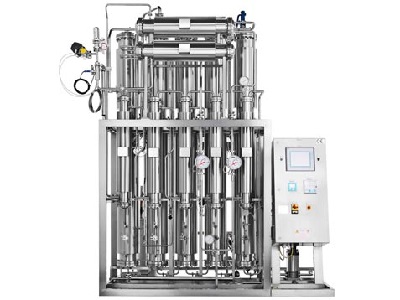Clean and pure water is a fundamental requirement for a wide range of medical and surgical procedures. The quality of the water used can play a significant role in the effectiveness and safety of these treatments. Medical water purification systems are designed to produce medical-grade water that meets the specific needs of physicians, surgeons, and other medical professionals. In this blog post, we'll explore the benefits of using medical water purification systems for medical and surgical procedures.
Water quality is of paramount importance in the medical and surgical field. Any impurities or contamination in the water used during procedures can pose a significant risk to both the patient and the medical professional. For example, water used in medical equipment must be free of bacteria, viruses, and other pathogens to ensure the equipment is functioning properly. Failure to maintain the highest possible level of water quality can result in severe infections that may require further medical attention. A medical water purification system ensures that the water used for medical procedures is of the highest quality, reducing the risk of contamination and promoting patient safety.
Medical water purification systems offer numerous benefits for medical and surgical procedures. They are designed to remove bacteria, viruses, and other contaminants from the water, ensuring its purity. This makes it ideal for use in medical equipment, including sterilizers, autoclaves, and surgical instruments. By using a medical water purification system, healthcare professionals can be confident that the water they are using is free of impurities that may compromise patient safety. Additionally, medical water purification systems can help offset the risk of waterborne disease outbreaks, such as Legionnaires' disease.
One important aspect of medical water purification systems is their ability to sterilize water. Sterilization is an essential process in medical and surgical procedures, as it eliminates dangerous microorganisms that are present in tap water. Sterilization can be achieved through a range of methods, including ultraviolet (UV) light, membrane filtration, and reverse osmosis (RO). The sterilization process ensures that the water meets the most stringent medical standards, which makes it safe to use in a variety of medical procedures. Using a water sterilization system as part of the medical water purification process ensures that any harmful microorganisms are removed, preventing the spread of infection and disease.
Medical water purification systems play a crucial role in ensuring the purity and safety of water used in medical and surgical procedures. They remove impurities, including bacteria, viruses, and other pathogens, reducing the risk of contamination during procedures. Medical professionals can, therefore, be confident that the water they are using meets the most stringent medical standards. Medical water purification systems can also reduce the risk of waterborne diseases and other health risks associated with poor water quality, making them essential for promoting patient safety in medical and surgical settings. By investing in a medical water purification system, medical professionals can deliver the highest quality care to their patients.


